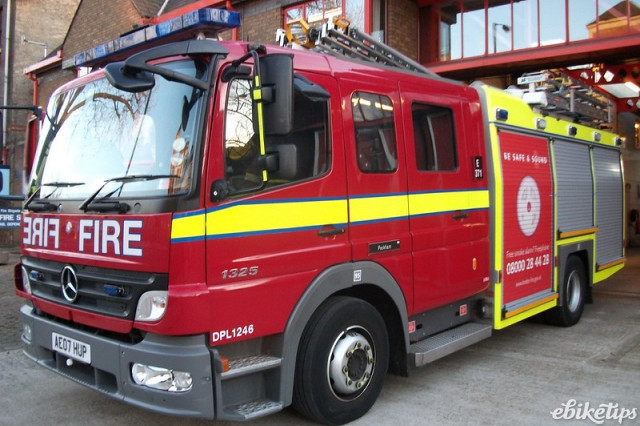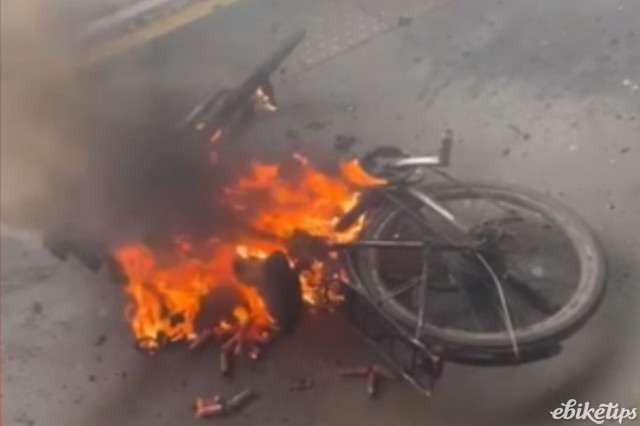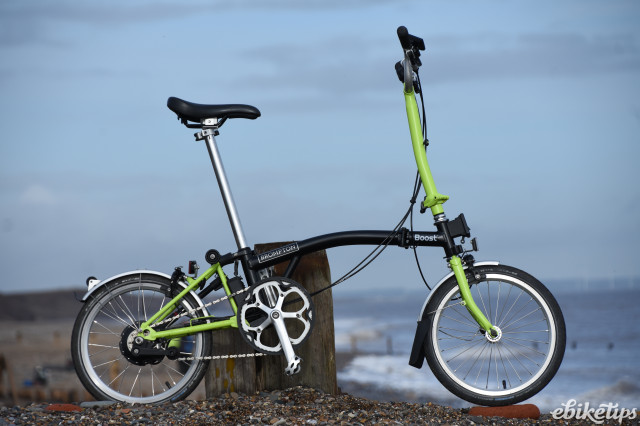A coroner in Bristol has called for government action to be taken to prevent future deaths related to e-bike fires, saying there appears to be a “lack of understanding” of the potential dangers with lithium-ion batteries used for e-bikes and e-scooters.
Abdul Oryakhel died after falling from the window of his 16th floor flat in September 2022, when he was trying to escape from a fire caused by the overheating and ignition of a lithium-ion battery pack from an e-bike. His death has been ruled as an accident.
Another person received significant burns whilst escaping and two others escaped by crawling out a kitchen window and being rescued by emergency services.
Coroner Maria Voisin said there is, “a risk that future deaths will occur unless action is taken”, and, “I understand that there is currently no British or European (e.g. BSI or PAS) standard to control what lithium-ion e-bike batteries and chargers can be sold in the UK”.
She added: “I am aware that other coroners have written similar reports but this only goes to emphasise that preventable deaths continue.”
Last year, coroner Adam Smith called for tighter regulations on e-bike batteries and charging devices after a father of two lost his life in a fire. Mizanur Rahman, 41, died in a flat fire in March 2023, which the London Fire Brigade (LFB) said was caused by a faulty lithium e-bike battery on charge.
The coroner recommended that the Office for Product Safety and Standards (OPSS) instigate, a “British or European (e.g. BSI or PAS) standard to control what lithium-ion e-bike batteries and chargers can be sold in the UK.”
> Are e-bike batteries safe? What’s the difference between a safe battery and a fire risk?
OPSS last September published information for consumers on e-bike and e-scooter safety, including to unplug batteries when charging has finished, as well as advice on using manufacturer recommended batteries and chargers and recommendations to buy from known sellers and check product reviews.
In December it also issued an ‘Important Safety Message’ aimed at those looking at buying an e-bike or e-scooter, with recommendations including only buying from a known seller, always following the manufacturer’s instructions, only using the manufacturer’s recommended battery or charger, always charging in a safe place, and never attempting to modify or tamper with a battery.
Calls for third-party certification
Charity Electrical Safety First (ESF) has called for rules that would require e-bike and e-scooter batteries to be certified as safe by a third-party organisation. At present, manufacturers can self-declare their devices are safe.
The organisation argues such a move would, "protect good manufacturers, weed out the bad ones and most importantly save lives.”
Its report Battery Breakdown also recommends a ban on ‘universal’ e-bike chargers, the development of a product standard specific to conversion kits, and the introduction of legislation to make online marketplaces take reasonable steps to prevent or delist unbranded and potentially non-compliant conversion kits.
A petition on change.org is also urging the OPSS to implement stricter regulations on e-bikes, e-scooters, and the batteries and chargers sold with them, as well as calling for stricter enforcement of quality control and standards.
The petition, backed by the LFB, was made by the friends and family of 21-year-old Sofia Duarte who died in a fire believed to have been caused by a converted e-bike’s battery bursting into flames.
> E-bike safety: What to avoid when buying an e-bike, battery or charger
Voisin’s report, which is being sent to the OPSS, the Department for Transport, and the West of England Combined Authority, requires a response by 12 September.







